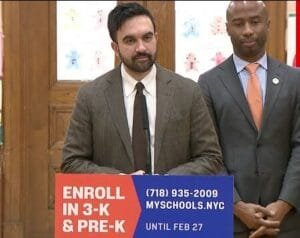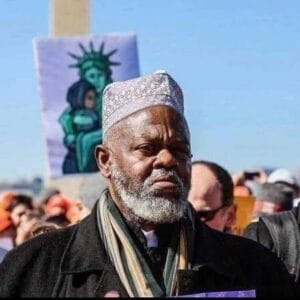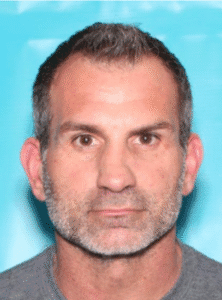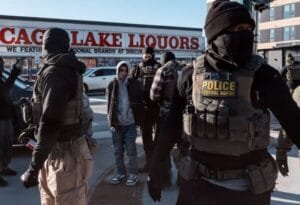New York Attorney General calls for dissolution of NRA, alleges massive corruption

New York Attorney General, Letitia James, has filed a lawsuit to seek dissolution of the National Rifle Association, the largest and most influential pro-gun organization in the nation.
The Attorney General, in her lawsuit, charged the organization with illegal diversion of millions of dollars away from the charitable mission of the organization for personal use by senior leadership, award of contracts to the financial gain of close associates and family, and award of lucrative no-show contracts to former employees in order to buy their silence and continued loyalty.

The suit specifically charged the NRA as a whole, as well as Executive Vice-President Wayne LaPierre, former Treasurer and Chief Financial Officer (CFO) Wilson “Woody” Phillips, former Chief of Staff and the Executive Director of General Operations Joshua Powell, and Corporate Secretary and General Counsel John Frazer with failing to manage the NRA’s funds and failing to follow numerous state and federal laws, contributing to the loss of more than $64 million in just three years for the NRA.
In her complaint, James laid out dozens of examples where the four individual defendants failed to fulfill their fiduciary duty to the NRA and used millions upon millions from NRA reserves for personal use, including trips for them and their families to the Bahamas, private jets, expensive meals, and other private travel.
In addition to shuttering the NRA’s doors, James is determined to stop the four individual defendants from serving on the board of any not-for-profit charitable organization in the state of New York again.
“The NRA’s influence has been so powerful that the organization went unchecked for decades while top executives funneled millions into their own pockets,” said Attorney General James.
“The NRA is fraught with fraud and abuse, which is why, today, we seek to dissolve the NRA, because no organization is above the law,” she added.
According to James, since 1871, the NRA has operated as a New York-registered 501(c)(4) not-for-profit, charitable corporation.
Under state law, not-for-profit, charitable corporations are required to register and file annual financial reports with the Charities Bureau in the Office of the Attorney General (OAG).
The assets are required to be used in a way that serves the interests of NRA membership and that advance the organization’s charitable mission.
However, as today’s complaint lays out, the NRA is alleged to have fostered a culture of non-compliance and disregard for internal controls that led to the waste and loss of millions in assets and contributed to the NRA reaching its current deteriorated financial state.
The complainant alleged that NRA’s internal policies were repeatedly not followed and were even blatantly ignored by senior leaders.
She stated further that the NRA board’s audit committee was negligent in its duty to ensure appropriate, competent, and judicious stewardship of assets by NRA leadership.
“Specifically, the committee failed to assure standard fiscal controls, failed to respond adequately to whistleblowers, affirmatively took steps to conceal the nature and scope of whistleblower concerns from external auditors, and failed to review potential conflicts of interest for employees,” she said.
James also alleged that the four men instituted a culture of self-dealing, mismanagement, and negligent oversight at the NRA that was illegal, oppressive, and fraudulent.
She complained that they overrode and evaded internal controls to allow themselves, their families, favored board members, employees, and vendors to benefit through reimbursed expenses, related party transactions, excess compensation, side deals, and waste of charitable assets without regard to the NRA’s best interests.
“When board members challenged LaPierre and others over their financial governance and leadership of the NRA, LaPierre retaliated and turned the board against those who attempted to challenge the illegal behavior,” James alleged.
The complaint mentioned numerous other instances in which LaPierre, Phillips, Powell, Frazer, and other executives and board members at the NRA abused their power and illegally diverted or facilitated the diversion of tens of millions of dollars from the NRA.
James maintained that the funds were in addition to millions of dollars the four individual defendants were already receiving in grossly excessive salaries and bonuses that were not in line with the best practices and prudent standards for evaluating and determining compensation.
In his nearly three decades as executive vice-president, Wayne LaPierre ran the day-to-day operations of the NRA and exploited the organization for his and his family’s financial benefit, and the benefit of a close circle of NRA staff, board members, and vendors.
James alleged that the leadership spent hundreds of thousands of dollars of the NRA’s charitable assets for private plane trips for himself and his family, including extended family when he was not present.
She said that they visited the Bahamas by private air charter at least eight times in an approximate three-year period with his family, at a cost of more than $500,000 to the NRA.
The attorney also alleged that on many of those trips, LaPierre and his family were gifted the use of a 107-foot yacht owned by an NRA vendor.
“He traveled to Africa with his wife for all-expense paid safaris, gifted by an NRA vendor.
“He spent millions on unwarranted travel consultants for decades, including for the booking of luxury black car services — spending more than $3.6 million in the last two years alone,” he said.
Another allegation is that LaPierre secured a post-employment contract for himself with the NRA, without board approval, currently valued at more than $17 million.
“Lapierre allotted several millions of dollars annually in NRA funds for private security costs for himself and his family without sufficient oversight on their use.
“He received more than $1.2 million in expense reimbursements in just a four-year period for expenditures that included gifts for favored friends and vendors; travel expenses for himself and his family; and membership fees at golf clubs, hotels, and other member clubs,” the attorney said.
James equally alleged that Lapierre secured lucrative consulting contracts for ex-employees and board members worth millions.
It was also complained that as executive vice-president, LaPierre handpicked individuals in senior staff positions at the NRA that have shown themselves to be loyal to LaPierre as an individual, rather than to the organization.
“Time and time again, LaPierre has shown that loyalty, more than competence and responsibility, is integral to his staffing picks, which led him to personally hire Phillips, Powell, and Frazer — some chosen despite failing to meet the necessary skills or experience for their respective roles and responsibilities,” the allegation reads.
The allegation states that Woody Phillips, the former treasurer and CFO, who was responsible for managing the books and financial operations of the NRA, engaged in practices that violated NRA policy.
“Phillips lied on financial disclosure forms, and set up a deal worth more than $1 million that benefitted his girlfriend.
“Just before his retirement in 2018, Phillips obtained a contract for himself worth $1.8 million, purportedly for monthly consulting services to the incoming treasurer, even though the current treasurer knew nothing about this contract and has confirmed that “Woody [Phillips] never consulted for me.
“Phillips, having served in the capacity as the chief steward of the organization’s finances, also oversaw the financial practices that allowed millions of dollars in entertainment and travel expenses incurred by NRA executives to be fraudulently billed to the NRA as disbursements by the NRA’s largest vendor: Ackerman McQueen, an Oklahoma-based advertising and public relations firm,” the allegation reads.
The complaint asserted that Phillips consistently eschewed his fiduciary duties time and time again, as evidenced by his failure to seriously respond to whistleblower complaints about alleged fiscal improprieties and his readiness to unilaterally authorize payments and contracts outside of the NRA adopted purchasing and contracting policies and procedures.
According to the complainant, Joshua Powell, the chief of staff to LaPierre, was terminated after just 3.5 years for, among other things, misappropriating NRA funds during his tenure.
She stated that Powell, who is known as a LaPierre loyalist, received sudden and substantial salary increases almost immediately after starting his position.
“Within a month, his salary was doubled retroactively to the beginning of his tenure with the NRA to $500,000.
“After less than a year, Powell’s salary increased to $650,000. A little over two years into the job, Powell’s salary more than tripled from the original $250,000 to $800,000, despite numerous complaints of abusive behavior and evidence of illegal conduct and inappropriate spending,” James said.
She further stated that Powell abused the NRA’s policy on housing and relocation reimbursements, pocketing in excess of $100,000 more than NRA rules allowed.
The attorney alleged that Powell’s tenure was marked by nepotism.
“LaPierre, Phillips, and Powell also signed off on the hiring of fundraising consultant McKenna & Associates outside of the NRA’s contract process and without going through any approval process.
“The NRA paid the company more than $5 million over the course of five years. For all of 2018, Powell’s wife was hired as a consultant by McKenna & Associates, and her entire $30,000 monthly consulting fee was passed through the NRA,” James said.
She said that the hiring of Powell’s wife was hidden from the NRA’s general counsel, in an effort to not draw attention to and affirmatively hide the conflict of interest, and her role was not pre-approved by the NRA board, as the organization’s policy requires.
In the suit, it was stated that Powell requested an NRA vendor to add his father to a rotation of paid photographers, resulting in more than $90,000 in compensation for his father, an expense which was completely passed through to the NRA.
The lawsuit states that John Frazer was chosen by LaPierre to serve as general counsel and also served as corporate secretary at the NRA.
“Between 2014 and 2018, Frazer repeatedly failed to comply with board governance procedures.
“He failed to ensure that financial transactions were being addressed by NRA officers and directors in accordance with law,” the suit states.
She added that Frazer failed to enforce compliance with the NRA’s conflict of interest policy, and failed to ensure that the NRA was in compliance with laws and policies governing whistleblowers.
A practice decades-old between LaPierre and Ackerman McQueen’s co-founder — that would continue until the two companies severed ties in 2019 — ensured that Ackerman McQueen would pay for a variety of non-contractual, out-of-pocket expenses for LaPierre and other NRA executives and pass those expenses through to the NRA.
The NRA leadership regularly used this pass-through arrangement — where expenses would be paid for by the NRA without written approvals, receipts, or supporting business purpose documentation — to conceal private travel and other costs that were largely personal in nature.
Ackerman McQueen would aggregate the expenses into a lump sum amount and provide no details on the nature or purpose of the expenses when billing the NRA for them. The invoices only typically included a one-line description that read “out-of-pocket expenses” and included an invoice total amount.
The expenses billed to the NRA for out-of-pocket expenses did not comply with IRS requirements, and, as a result, all such expenses should have been included by the NRA in taxable personal income for LaPierre and other recipients.
Ackerman McQueen was paid more than $70 million in just 2017 and 2018 for “public relations and advertising” services and for “out-of-pocket expenditures” that really went to entertainment and travel incurred by NRA executives and associates without scrutiny from within the organization, including millions for private planes, luxury hotels, memberships to private clubs, special events, fancy meals, and even personal hair and makeup services for LaPierre’s wife.
Under New York law, the NRA’s audit committee is responsible for overseeing the accounting and financial reporting processes of the organization and the audit of its financial statements, but the culture of noncompliance and disregard for the internal controls is evident within the audit committee.
The committee failed to serve as an independent check on LaPierre, his senior staff, and the NRA as a whole, and basically served as a rubber stamp for the organization’s illicit behavior, when it did review finances.
For example, the audit committee is charged with reviewing any contract that has the appearance of a conflict of interest, such as a contracts with insiders referred to as related-party transactions, and must not only perform certain considerations, but also document its deliberations.
The committee routinely approved related-party transactions after LaPierre or senior staff entered into such agreements. In fact, in 2018, the audit committee approved seven related-party transactions after the fact, including a contract between the NRA’s then incoming president and Ackerman McQueen.
At the time this contract was executed, the terms were known to LaPierre and Phillips, but the audit committee had no knowledge of it. Then, again in 2019 and 2020, the audit committee purportedly approved, retroactively, many other existing NRA contracts, some of which dated back 15 years.
The audit committee’s chair testified during a deposition with the OAG that he had no knowledge of New York law governing audit committees, whistleblowers, or conflicts of interest, and that he could not recall the last time he had seen the audit committee charter that specifically states the audit committee “overs[ees] the integrity of financial information” at the NRA.
In fact, the committee chair testified that, in his view and contrary to the charter, the audit committee had no role in oversight of internal controls and that “there is no internal auditing” within the NRA and there hadn’t been one in the whole 19 years he served on the NRA board.
Unsurprisingly, during numerous occasions, the audit committee failed to respond adequately to whistleblowers, failed to appropriately review and approve related-party transactions and conflicts of interest, and failed to adequately oversee external auditors.
Attorney General James alleged in her complaint that the NRA violated multiple laws, including the laws governing the NRA’s charitable status, false reporting on annual filings with the IRS and with the OAG’s Charities Bureau, improper expense documentation, improper wage reporting, improper income tax withholding, failure to make required excise tax reporting and payments, payments in excess of reasonable compensation to disqualified persons, and waste of NRA assets; in direct violation of New York’s Estates, Powers & Trusts Laws; New York’s Not-for-Profit Corporation Law; the New York Prudent Management of Institutional Funds Act; and New York’s Executive Law.
The illegal nature of the four individual defendants’ action also violated multiple rules of the NRA’s bylaws, the NRA’s employee handbook, and the NRA’s policy manual.
The failure of the NRA to comply with multiple fiduciary responsibilities and state and federal laws resulted in the NRA seeing substantial losses on its balance sheet: going from a surplus of $27,802,714 in 2015 to a net deficit of $36,276,779 in 2018 — contributing to a total loss of more than $64 million in just three years.
While calling for the dissolution of the NRA, Attorney General James, asked the court to order LaPierre, Phillips, Powell, and Frazer to make full restitution for funds they unlawfully profited and salaries earned while employees.
She added that the should pay penalties, recover illegal and unauthorized payments to the four individuals.
She also removed LaPierre and Frazer from the NRA’s leadership and ensure none of the four individual defendants can ever again serve on the board of a charity in New York.
Attorney General James, who began her inquiry into the NRA in February 2019, was supported by Bureau Chief James Sheehan and Bureau Co-Chief of the Enforcement Section, Emily Stern, with a team of attorneys, legal assistants, and accountants, including Assistant Attorney General and Special Counsel of the Litigation Bureau Monica Connell; Assistant Attorneys General William Wang, Sharon Sash, Jonathan Conley, Stephen Thompson, and Erica James.
The Charities Bureau is part of the Division for Social Justice, which is supervised by Chief Deputy Attorney General Meghan Faux and First Deputy Attorney General Jennifer Levy.














